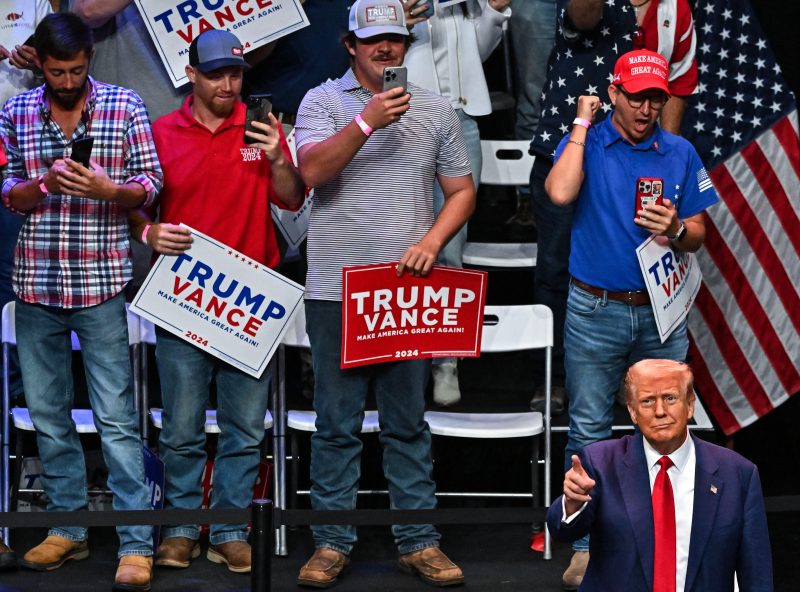In recent decades, the role of women in politics has significantly evolved, going from simply being voters to important decision-makers and candidates themselves. The male-dominated culture that has traditionally characterized political campaigns is becoming increasingly outdated as more women assert their influence and demand equal representation. This shift in dynamics has not gone unnoticed, as evidenced by the scrutiny faced by campaigns such as that of former President Donald Trump.
The Trump campaign, known for its aggressive and often divisive tactics, has been subject to extensive criticism for its male-dominated culture and the implications this has for losing women voters. In a political landscape where women make up a crucial voting bloc, failing to address their concerns and perspectives can have significant consequences for any campaign vying for their support.
The lack of representation of women in key decision-making roles within the Trump campaign has reinforced perceptions of a disconnect between the campaign’s messaging and the lived experiences of female voters. When women do not see themselves reflected in the leadership and decision-making processes of a campaign, they are less likely to feel heard and understood. This can lead to a sense of alienation and disenchantment with the campaign’s objectives and policies.
Moreover, the rhetoric and behavior of the Trump campaign, often criticized for being hostile towards women and promoting outdated gender stereotypes, have further alienated female voters. In an era of increasing awareness around gender equality and women’s rights, campaigns that perpetuate discriminatory attitudes risk isolating a significant portion of the electorate.
To address these challenges and appeal to female voters, political campaigns must prioritize diversity and inclusion in their ranks. This includes not only increasing the representation of women in leadership positions but also ensuring that their voices are heard and respected in shaping campaign strategies and messaging. Campaigns that demonstrate a genuine commitment to gender equality and inclusivity are more likely to attract and retain female supporters.
In conclusion, the male-dominated culture of political campaigns, exemplified by the Trump campaign, is increasingly at odds with the evolving role of women in politics. Campaigns that fail to embrace diversity and inclusivity risk losing the support of female voters and alienating a crucial segment of the electorate. By prioritizing gender equality and representation, campaigns can build stronger connections with women voters and create a more inclusive and responsive political landscape.

